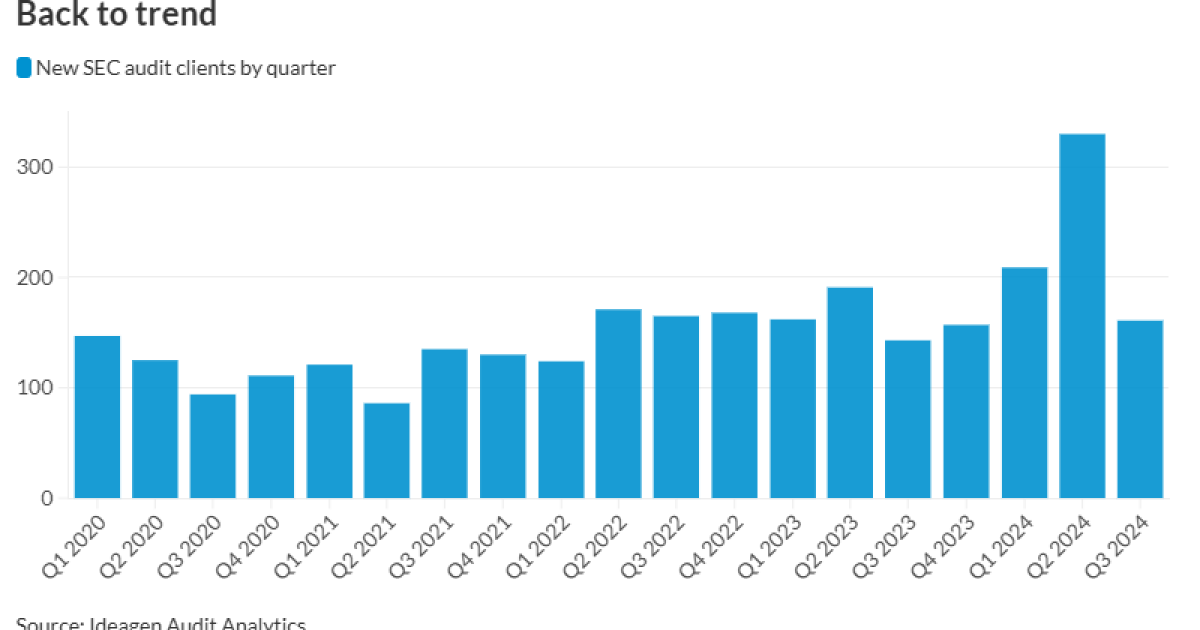While CPA firms far and wide have made major technology investments over the years, the vast majority of accountants say they’re not being used to their full potential.
This finding comes from a recent survey undertaken by CPA.com and payment solutions provider Bill. The 400-person poll found that nearly all respondents, 97%, say they use technology inefficiently and that additional training is needed to maximize return on investment. Further illustrating the point, 43% of respondents said that technology is making them do more manual work, not less, something. Becky Munson, an Eisner Amper partner specializing in outsourced accounting services, believes this reflects a failure of training and change management, as she has seen many who disliked a technology change develop manual workarounds specifically to avoid using the new solutions.
“We see employees make workarounds with tech stacks, which makes headaches that I think align with this 43%. We train people on new things, we ask them to use them, and they keep doing what they were doing before and only use the technology as much as they have to [in order to] move things along while you have people well trained on the software keeping up,” she said in a webcast on Thursday about the survey.
Ariege Misherghi—senior vice president and general manager of accounts payable, accounts receivable and the accountant channel—said the issue isn’t just because of firms but also vendors that don’t provide enough support, and may not necessarily understand the profession in the first place.
“Too often I think tools aren’t fully aligned with the workflows they’re meant to support. In SaaS they talk about product-market fit, but in this profession it’s not just that but also product-firm fit, and maybe product-profession fit. Not every tool marketed to accountants was built by people who truly understand how this profession works: the rhythms, the regulations, the stakes, the relationships, all of that. And even the greatest tools can fall short if they’re not implemented with a deep understanding of how firms really operate,” she said.
And sometimes the inefficiencies come from both sides at once: the survey found that only 37% of firms require clients to use their tech stack, something that Munson said “breaks my heart” as “it is so low.” A streamlined, established tech stack is needed to achieve true economies of scale, but to get there firms need to standardize their data, and to do that firms need to make sure their clients’ data is also standardized, which usually means integrated tech stacks.
“If you have all these different clients with all these different technologies, even if your own tech stack is standardized the systems they use is different, so the kind of data you will get will be different, and the work you need to do to make it work with your data is different, and your team spends a lot of time spinning their wheels,” she said. “Once you get standardized, where everything back and forth from clients is the same, you get to see how well the teams can do their work.”
One source of inefficiencies is a rushed implementation. Munson said that, too many times, firms are so eager to get a solution working that they don’t pay attention to all its capacities, just the ones they need right now, but once the basics are down firms still don’t circle back on the rest of the features and how they can be used to drive efficiency.
“Most of us have been through an implementation, either in the practice or with a client, where you’re just like ‘anything to get it working. Forget about all the fancy things it does. We just needed to do the basics right,’ and then we never circle back on those better, more efficient processes. We get to sort of minimal viable, and then we forget to come back and give it an extra polish. And so what we see there is the processes get written for that basic piece, and we never update,” she said.
But this is part of what both speakers believed was the larger problem of firms getting lost in the details of their tech stacks and not taking a broader, more holistic approach, which would enable more efficiencies. The key component to managing technology effectively, Munson said, is looking not at individual solutions here and there but thinking of the system as a whole.
“Often, what happens is something’s wrong or something is troublesome in some way. And so [we say] what can we do to fix that one thing? And we don’t think about it holistically and get all the right folks in there so that we’re solving for the right pain points,” she said.
Misherghi agreed, and added that this holistic extends not only to the technology a firm already has but the solutions they plan to purchase in the future. When evaluating what technology they need, she said leaders need to think not in terms of specific point solutions to particular problems but things that can support the entire workflow—plus, the onboarding, training and ongoing support from the vendor.
“Don’t just look for features, right? Look for solutions that support your workflows from providers that understand you. For firms, onboarding and training and optimization can’t be an afterthought. They’re essential to realizing value. I think this is where vendor partnerships matter. Firms seeking the strongest results aren’t just using software, they’re collaborating with their providers, they’re staying educated, they’re making sure their tools evolve alongside their needs. The best outcomes happen when your technology partner acts like part of your team, not just part of your toolkit,” she said.
Misherghi said that the more successful firms she’s seen think less in terms of performing particular tasks but designing an entire system that, through automation, can do those tasks for them. It is less about plugging holes and more about developing a full infrastructure. The survey found that 74% of participants have a detailed plan to add new services in the next 12 month; Misherghi noted that, among these firms, 86% have a detailed technology roadmap, which is “a wonderful mark on the evolution of the profession we’re seeing.”
She said a good tech roadmap is more like a service design blueprint versus a shopping list. Successful firms, she said, are not just chasing features but designing intentional workflows and systems capable of scalable service delivery. Similarly, she stressed that the provider should be more than just a vendor but a strategic co-architect that can help with growing pains.
Misherghi said this approach will become especially relevant as AI becomes more common, as integrations will be key to their effective use, which means thinking in terms of the whole system to understand where those integrations should take place. Right now, she said, people think of AI in terms of analyzing data or extracting fields, but with the rise of AI agents will require firms to focus more on coordinating between them.
“I think the next big leap is when those systems don’t just talk to each other, they act on each other’s behalf. I think the next big inflection point will be moving from automated steps to autonomous workflows, where AI agents aren’t just analyzing data or extracting fields but actually orchestrating tasks across tools based on firm policies and context and that will change the role of the accounting profession: its less time doing the work and more time designing the system for how everything works together. So the firms that will be thriving are those who are building strong infrastructure now because that is what AI needs to deliver on its core value,” she said.


 Personal Finance1 week ago
Personal Finance1 week ago
 Personal Finance1 week ago
Personal Finance1 week ago
 Personal Finance1 week ago
Personal Finance1 week ago
 Economics1 week ago
Economics1 week ago
 Economics1 week ago
Economics1 week ago
 Economics1 week ago
Economics1 week ago
 Economics1 week ago
Economics1 week ago
 Economics1 week ago
Economics1 week ago











